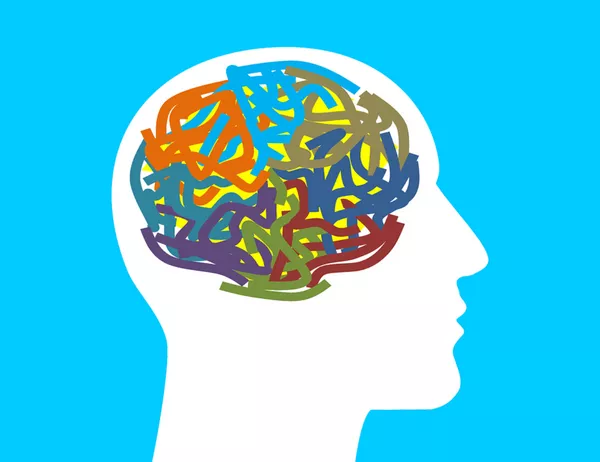Schizophrenia, a severe mental health disorder characterized by distorted thinking, hallucinations, and impaired cognitive function, has long been a subject of intense research and exploration. While genetic and environmental factors are recognized contributors to the development of schizophrenia, the role of stress, specifically stress-induced schizophrenia, has garnered increasing attention in the mental health landscape. In this comprehensive article, we delve into the intricacies of stress-induced schizophrenia, exploring its potential triggers, underlying mechanisms, and the evolving field of research aimed at unraveling this complex relationship.
The Basics of Schizophrenia
Before delving into stress-induced schizophrenia, it’s crucial to grasp the fundamentals of schizophrenia itself. Schizophrenia is a chronic mental health disorder characterized by a range of symptoms that can significantly impact an individual’s thoughts, emotions, and behavior. Common manifestations include hallucinations, delusions, disorganized thinking, and impaired social or occupational functioning.
Genetic and Environmental Factors in Schizophrenia
The interplay between genetic and environmental factors is widely acknowledged in the onset of schizophrenia. While a genetic predisposition may increase susceptibility, environmental stressors play a pivotal role in triggering the manifestation of symptoms. These environmental factors encompass prenatal complications, childhood adversity, substance abuse, and, notably, chronic stress.
Defining Stress-Induced Schizophrenia
Stress-induced schizophrenia refers to the hypothesis that exposure to chronic or severe stress may contribute to the development or exacerbation of schizophrenia in susceptible individuals. The relationship between stress and schizophrenia is complex, involving intricate neurobiological processes that researchers are still working to elucidate.
The Neurobiological Underpinnings
To comprehend stress-induced schizophrenia, it’s essential to explore the neurobiological mechanisms at play. Chronic stress triggers a cascade of physiological responses, including the release of stress hormones such as cortisol and alterations in neurotransmitter systems, particularly dopamine. In schizophrenia, there is a well-established association with dysregulation in dopamine transmission, a neurotransmitter implicated in mood, motivation, and psychosis.
Stress-induced changes in the brain’s structure and function, particularly the hippocampus and prefrontal cortex, have also been implicated in schizophrenia. These alterations may impact cognitive processes, emotional regulation, and the ability to filter out irrelevant stimuli—hallmark features of schizophrenia.
Types of Stressors Linked to Schizophrenia
Various stressors, both acute and chronic, have been associated with the development of schizophrenia. These stressors can manifest across different life stages, influencing vulnerable individuals. Some notable stressors include:
Prenatal Stress:
Exposure to stress during pregnancy, such as maternal infections, malnutrition, or psychosocial stressors, has been linked to an increased risk of schizophrenia in offspring. The prenatal period is a critical window during which the developing fetal brain may be susceptible to the effects of stress.
Childhood Trauma:
Childhood adversities, including physical, emotional, or sexual abuse, as well as neglect, have been identified as significant risk factors for schizophrenia. The enduring impact of early-life stressors on neurodevelopmental trajectories may contribute to the emergence of schizophrenia later in life.
Urbanicity and Social Stress:
Growing up in urban environments and exposure to social stressors, such as discrimination or social isolation, have been associated with an elevated risk of schizophrenia. The intricate interplay between environmental stressors and genetic vulnerability shapes an individual’s susceptibility to the disorder.
Life Events and Chronic Stressors:
Major life events, chronic stress in adulthood, and exposure to ongoing psychosocial stressors contribute to the complex tapestry of stress-induced schizophrenia. The cumulative effect of stress over time may act as a catalyst for the expression of schizophrenia symptoms.
The HPA Axis and Cortisol Dysregulation
The Hypothalamic-Pituitary-Adrenal (HPA) axis, a key component of the body’s stress response system, plays a central role in stress-induced schizophrenia. Chronic stress activates the HPA axis, leading to the release of cortisol, the primary stress hormone. Prolonged cortisol elevation has been associated with structural and functional changes in the brain, potentially contributing to the pathophysiology of schizophrenia.
Gaining Insights from Animal Models
Research on stress-induced schizophrenia often involves animal models to unravel the intricate mechanisms at play. Stress paradigms in rodents, such as chronic unpredictable stress or social defeat stress, simulate chronic stressors observed in human experiences. These models provide valuable insights into the neurobiological changes induced by stress and their relevance to schizophrenia-like behaviors.
Challenges in Research and Diagnosis
Studying stress-induced schizophrenia poses inherent challenges, including the complex interplay of genetic and environmental factors, the heterogeneous nature of schizophrenia itself, and the ethical considerations of inducing stress in research participants. Additionally, diagnosing stress-induced schizophrenia remains a nuanced task, requiring a thorough understanding of an individual’s life history, stress exposures, and genetic predisposition.
Conclusion
Stress-induced schizophrenia represents a fascinating yet intricate area of research in the realm of mental health. The convergence of genetic predisposition and environmental stressors shapes the trajectory of schizophrenia, highlighting the need for a comprehensive understanding of the complex interplay between stress and mental health. Continued research endeavors hold the promise of unraveling the mysteries surrounding stress-induced schizophrenia, paving the way for enhanced diagnostic accuracy and innovative therapeutic strategies in the evolving landscape of mental health care.

